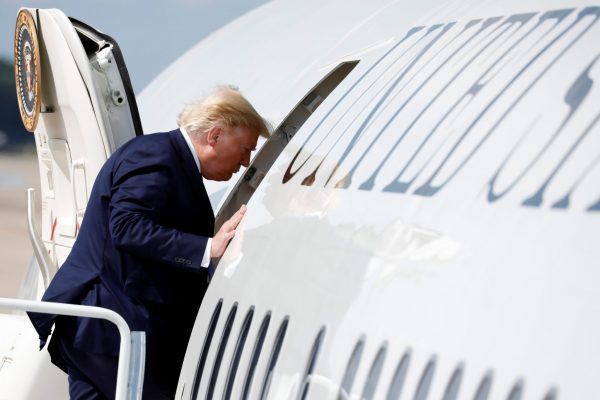The United States has gone from underwriting the order for the past 70 years to becoming its biggest threat.
Everybody recognises the need to update the WTO rules and the global trading system. That was acknowledged in the G20 summit declarations in Argentina last year and Osaka in June. But these declarations are weasel words in the face of the existential threat that US trade strategies pose to the rules-based trade regime today.
Realistic calculations of the cost to the United States itself, its principal protagonist — China — and the rest of the world suggest a loss of over 5 per cent of global GDP, and that US trade strategies are already shaking global investor confidence. Cross-border international investment plummeted close to 30 per cent in 2017 and 20 per cent last year. But there is no end in sight to this economic turmoil as Trump flouts the temporary trade truce with another tariff hike.
The fundamental issues behind the US–China trade tensions are not going to be solved any time soon and their bilateral, or even unilateral, resolution would also damage the rest of the world. How does the rest of the world confront a United States gone rogue against its own and global interests?
The rest of the world is not used to the burden of leadership responsibilities that it long presumed the United States would willingly carry. It also has no experience in mobilising a coalition of significant partners to provide collective leadership in place of hegemonic leadership of that system.
Yet two developments in global trade diplomacy over the past 10 days seem to offer important ways to deal with the US leadership deficit and hopefully attract the United States back into more productive global economic engagement in the long term.
First, in Nice 10 days ago, the European Union (EU) and Canada took an important step that effectively invites willing partners to join them in creating alternatives around the road blocks that US President Donald Trump and company have strewn across world trade routes. ‘Behold the emergent transatlantic Axis of Nice’, says Alan Beattie of the Financial Times.
The EU and Canada propose two things. First, a multilateral Investment Court System (ICS) that provides a more transparent and accountable alternative to most current investor–state dispute settlement (ISDS) arrangements — rewriting the EU–Canada Comprehensive Economic Partnership rules to serve as an initial model. The second is an alternative to the WTO dispute settlement process.
The latter is a workaround of the US blockage on appointing judges to the WTO appellate body. The solution is to create a shadow appellate body to rule on future disputes between the EU and Canada using retired appellate judges. Brussels and Ottawa have effectively issued an open invitation to other governments to participate. It’s no secret that other countries such as Indonesia and Australia have also been quietly considering similar options for some time.
The option of obviating the US veto in this way is now real and very much alive. There are signs that Washington is already rankled.
The United States will doubtless bring the various levers of its considerable power to shut the window now created. But the EU and Canada have opened a crucial escape hatch from the impending WTO governance crisis. Countries like Japan and Australia might be cautious about stepping forward early, but eventually they must weigh this alternative in the global interest.
The second development — more important in the near-term — was progress at the ministerial meeting in Beijing after the 47th round of negotiations towards concluding Asia’s Regional Comprehensive Economic Partnership (RCEP) agreement. RCEP is an ASEAN-inspired initiative that will bring the 10 ASEAN economies plus China, Japan, India, South Korea, Australia and New Zealand together in a free trade and ongoing economic cooperation arrangement. The successful conclusion of RCEP this year would be a significant statement of support for the multilateral trading system and represent a major pushback against US protectionism.
China is mooted to undertake major trade and investment liberalising steps in RCEP in advance of commitment in any settlement it reaches with the United States. That will help to defend the multilateral system. Laggard India appears to be coming on board despite its anxieties about Chinese competition — a victory for India as well as the global trade regime. RCEP’s economic cooperation agenda is crafted as an ongoing effort at dealing with difficult issues such as digital trade, trade-opening regulatory reform and professional movement of persons that are at the forefront of a modern trade agenda.
Both developments are important beach-heads in the battle to defend the multilateral trading system as Europe, Canada and Asia step up for multilateralism. It’s taken time to mobilise the troops in both theatres. But, even absent the United States, there’s hope that a multilateral economic order will prevail.
Peter Drysdale is Emeritus Professor of Economics, Head of the Asian Bureau of Economic Research and Editor-in-Chief of East Asia Forum in the Crawford School of Public Policy at the ANU.
Dr Mari Pangestu is Professor of Economics at the University of Indonesia, Senior Research at CSIS in Jakarta and formerly Indonesia’s Minister of Trade and Tourism.

